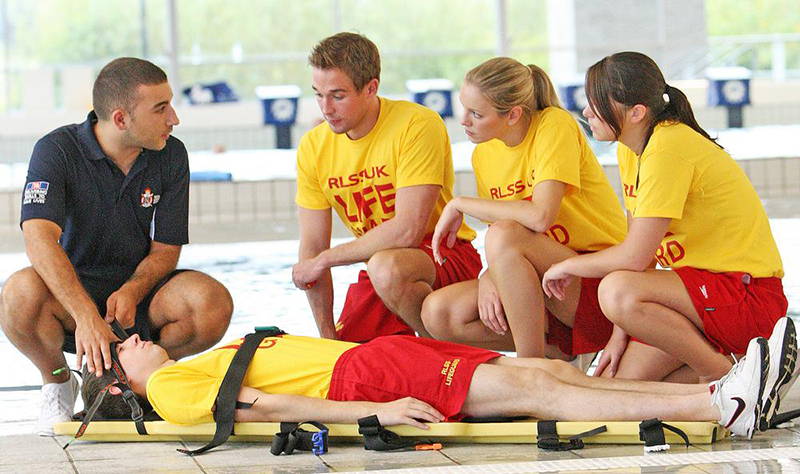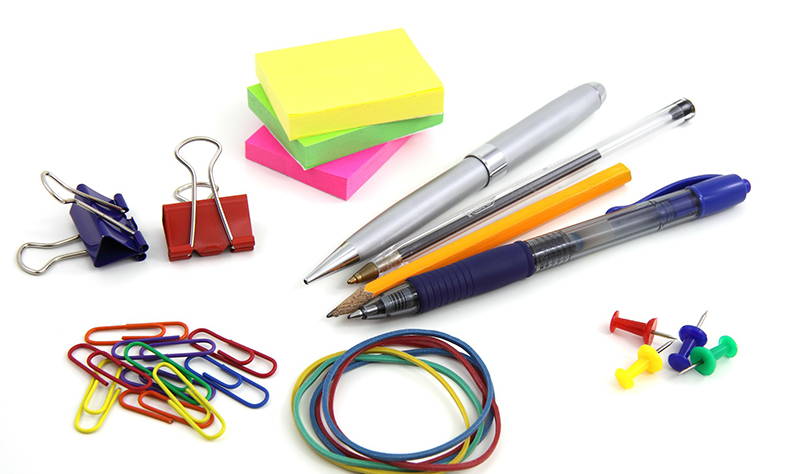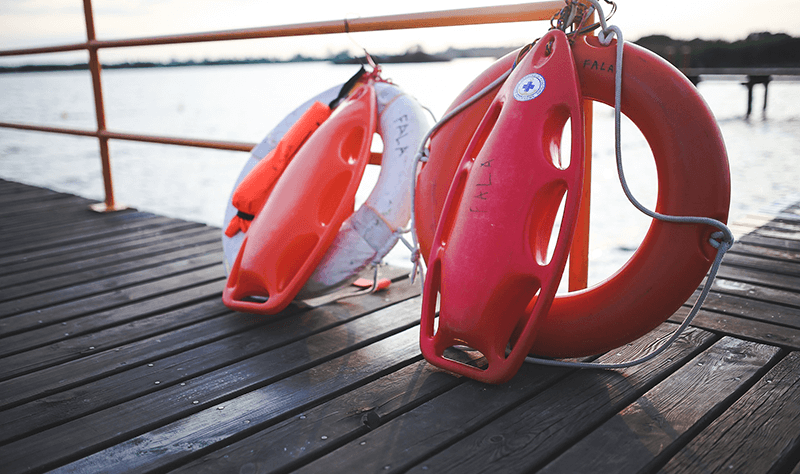In 2005, after a failed attempt in purchasing and a 9-month stint of unemployment, my now husband, in frustration, said, "Just find & do something you like!" That year, I was hired as the Aquatic Supervisor for a community center swimming pool in a rural community on the Quebec-Ontario boarder. I was not the most experienced, but I had years of both waterfront, pool, and instructor experience.
I came into a broken Aquatics department, where the previous supervisor had cursed out the staff before storming out and destroying all the paperwork and resources needed to do the job. I came into this new job with a sheet of names and phone numbers and little else.

About the author: Kim Maurice is the owner of A L'Eau Natation & team member with JMC Distribution & Vorgee
Working in a new province with different regulations and expectations was a severe handicap, I did not know anyone nearby who could assist me. Regardless, I was determined to make it work. Fifteen years later, I was able to retain a staff of 30, raise profits by 20-30% every two years, and with the help and support of my pool staff, we motivated hundreds of staff over that time to join our team.
Here are some of the things I have learned walking into a challenging situation & running a swimming pool and the associated programs in a rural Francophone area 90 minutes away from a major metropolitan centre.
GET TO KNOW YOUR STAFF. Take time to meet with the pool staff, one on one, to discuss their goals and expectations, their life, and their family. Ask them what they like, dislike from the job, and opportunities they would hope to benefit from.

GET TO KNOW THEIR FAMILIES. They will encourage their children to support you if they are like you. Be open and friendly, but remember to communicate well with your staff.

GROW YOUR NETWORKS. A small isolated swimming pool does not get the opportunities to have outside help. Set aside a small budget to get other aquatic professionals in to host training or trade services for emergencies. A great example on this point: I was losing my mind trying to explain and implement a policy at one point. I decided to bring in a trainer to run in-service to help define the policy and demonstrate why it was important. It solved the problem in 2 hours.

FOOD IS YOUR FRIEND: We implemented a Saturday breakfast before lessons, where swim lesson staff got 30 paid minutes to talk swim lessons, get advice, eat food and get to know each other. As an aquatic supervisor, I supplied the first and last lessons. The first lesson was a breakfast bar; the last lesson was a pizza lunch. All of our staff were invited to participate. It helped new staff learn about teaching, get to know new staff and clients, and was an enjoyable way to spend a Saturday morning.

Saturday guards would also pop in early before guard shift to see if there were any goodies left! And, of course, the high-level swimmers from the local team wanted food, so it was a great incentive to get them into lifesaving classes!
STAFF EAT OFFICE SUPPLIES- gifting random stickers, sticky notes and pens was always well received.

BE AVAILABLE. Ensure your pool staff ( AND CUSTOMER SERVICE) know they can reach you or another aquatic supervisor any time the pool is open. Encourage them to make decisions based on your training. Since I was the only supervisor, the staff knew I was available for any questions if I was not at the pool.

CUSTOMER SERVICE IS YOUR BEST FRIEND. These are the eyes and ears of your department. Listen to them. Help them when you can.
YOU DON'T KNOW EVERYTHING. My quote was," I'm sorry, we messed up!" If you are open and honest with your faults, you can help new staff work through their mistakes. We are all in this together!

YOU CANNOT DO WHAT YOU DO WITHOUT YOUR STAFF.We all have lives, families, obligations. Set your expectations, make sure your staff knows them. It is essential to understand it's hard to find replacements sometimes when you have a small staff. Try to be flexible, and train your clients that way too.

SPOIL THE MAINTENANCE STAFF. If you run a small aquatic facility or swim school, operations staff have several spaces to track. If you want a mess cleaned up in the locker room or washroom cleaned before the arena ice is done - Inviting maintenance to your morning breakfasts, saying thank you and making sure your aquatic staff know who they are, and treating them with respect goes a long way.


